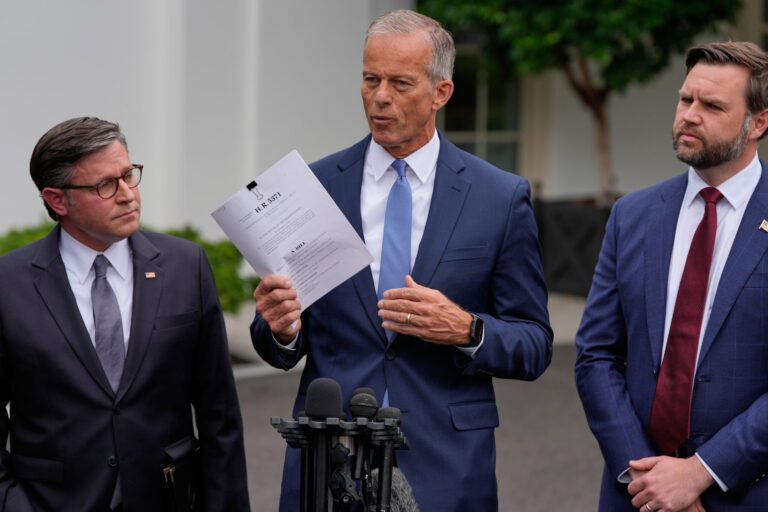Senate Republicans Stand Firm Against Filibuster Abolishment Amid Shutdown
As the government shutdown enters its fourth week, Senate Republicans are resolute in their position against the 60-vote filibuster threshold, despite increasing pressure from some conservative factions in both the House and Senate.
Understanding the Filibuster: Its Importance and Impact
Under current Senate rules, a 60-vote majority is required to invoke cloture, a procedure that ends debate on legislation. While the chamber made some modifications earlier this year affecting the speed at which nominees can be processed, major issues such as government funding and changes to federal laws continue to require the preservation of the filibuster.
Quotes from Key Senators
Senator Thom Tillis, who announced his retirement, expressed concerns over abolishing the filibuster:
“Do you as a business person really want to have to factor into your risk assessment for long-term capital expenditure that you could have massive swings in tax and regulatory policy every two, four, or six years?”
Tillis emphasized the certainty the filibuster provides, attracting international investment into the United States.
Senator John Cornyn echoed this sentiment:
“We’re not going to eliminate the 60-vote requirement. That would be bad for the American people.”
The Democratic Push for Reform
Democrats previously sought “carve-outs” from the filibuster for issues like voting rights and reproductive rights. They argued that reforming Senate precedent for these issues was justified. However, resistance from Senators Joe Manchin and Kyrsten Sinema meant that such reforms never materialized.
Senator John Fetterman’s Stand
In stark contrast, Senator John Fetterman ran his 2022 campaign on the promise to end the filibuster:
“We ran on it. We ran on killing the filibuster and now we love it.”
Fetterman stated he remains committed to that pledge and supports eliminating the filibuster to address the ongoing shutdown.
Republican Consensus Against Change
Republican Senators, including Roger Marshall, point out that maintaining the filibuster safeguards minority rights in the Senate:
“A Republican protests the rights of the minority…filibuster helps protect the minority, and I think it’s served our country well.”
Marshall referenced President Eisenhower’s long-term vision, emphasizing the importance of stability for future generations.
The Filibuster Debate Grows
The discussions surrounding the potential reform of the filibuster gained traction when Senator Bernie Moreno suggested that abolishing it should be reconsidered in light of the ongoing government stalemate:
“Maybe it’s time to think about the filibuster…We’ve got 52 Republicans. Let’s go and let’s open the government.”
Trump’s Shifting Stance on the Filibuster
Former President Donald Trump has previously called for eliminating the filibuster during his presidency, especially when seeking to push through his 2017 tax reform. However, he later warned that abolishing it could be “catastrophic” if a Democratic majority took control.
Since his return to the political scene in January, he has suggested alternative changes to Senate rules, pushing for expedited processes and the ability to appoint nominees without Senate consent.
Conclusion: The Path Forward
Key Takeaways
- Senate Republicans maintain a firm stance against abolishing the filibuster.
- Senator Fetterman stands by his campaign pledge to support eliminating the 60-vote requirement.
- The debate reflects broader concerns about government stability and the effects of fluctuating policy.
Understanding these dynamics is crucial as the Senate navigates through this ongoing budgetary crisis. As discussions continue, the political landscape in Washington remains contentious, underscoring the critical role of the filibuster in American legislative processes.
For more insights on the filibuster and its implications, check out this comprehensive guide.


